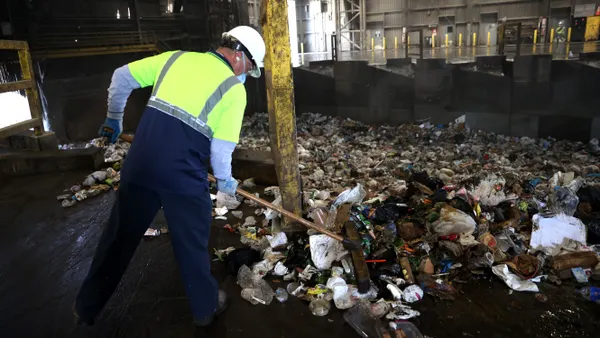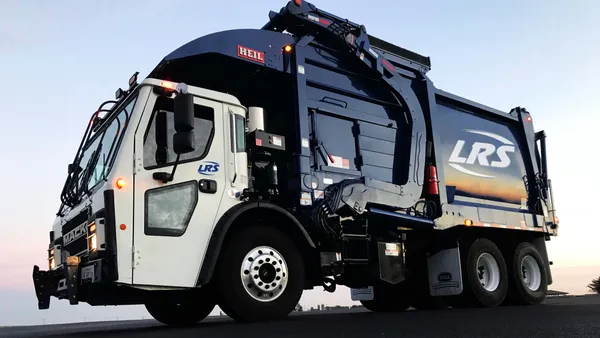Dive Brief:
- Researchers from the University of Texas Marine Science Institute are conducting a two-year study, with a $51,000 grant from National Oceanic and Atmospheric Administration (NOAA), to track marine debris on Coastal Bend beaches. They will be surveying four shorelines: Fish Pass, Padre Island National Seashore, San Jose Island Gulf Beach, and Lighthouse Lakes in Redfish Bay — all poorly maintained sites.
- Because Stewardship Coordinator Katie Swanson and Stewardship Assistant Hunter Samberson are following NOAA protocol and conducting the project with agency funds, they will go on to compare their findings with projects on other U.S. coasts, which will be made available for a national database on trends.
- The project entails sampling and collecting trash that will be dried, separated and weighed in a lab. "Our goal is to understand the trends and seasonality of the trash," said Swanson.
Dive Insight:
The University of Texas researchers hope the information they retrieve will motivate policymakers and resource managers to develop legislation addressing ocean trash dumping, according to a news release.
"There is a difference between trash that comes from the ocean and litter left by beachgoers," Swanson said referencing marine debris like hard hats, shrimp baskets, and plastic tubs as opposed to consumer-generated trash like candy wrappers and plastic bottles.
And the problem exists elsewhere. In Los Angeles, the problem was so bad that County health officials closed Dockweiler State Beach after waste washed ashore and excessive levels of bacteria were found in the water, at a time when people were advised to avoid other area beaches.
In Texas, trash collectors have picked up about 500 tons of marine debris on that state’s beaches, according to the Texas General Land Office's Adopt-A-Beach program.










